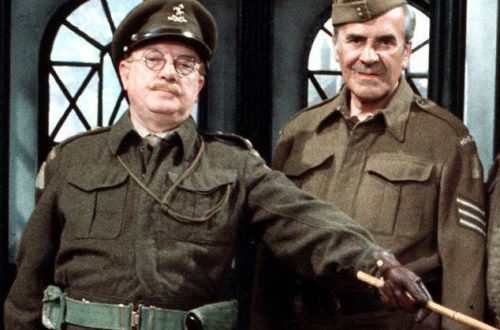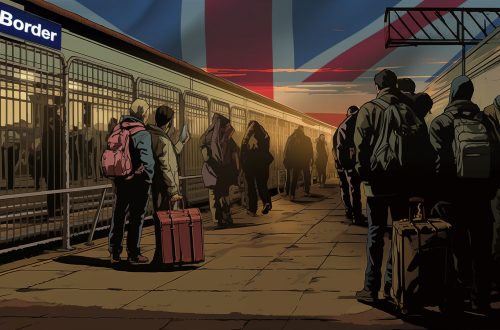This is a guest post by S.O.Muffin
Many a moon ago I whiled away my tot-hood at a school on fringes of Tel Aviv and I still recall that thick omnibus textbook of all that we were supposed to know: a little bit of literature, history, civics, maths, science… And there, on pages describing the days of hope, toil and sacrifice leading toward the establishment of the state, there were two small sepia photographs. One was of an obviously-Jewish young man with a rifle and a bandolier, captioned “לוחם עברי חמוש” – armed Hebrew warrior. The other, on the opposite page, was of an obviously-Arab young man with a rifle and a bandolier. Its caption was “פורע ערבי מזוין” – Arab rioter armed to the teeth.
This was an object lesson for me (after all, this was a school!) that language is not just an objective and innocent carrier of information. It is imbued with implicit (and not always that implicit!) bias and prejudice. It forms your views for you rather than just giving you the information and expecting you to reach your own conclusions.
Later, as I have grown and no longer used a single omnibus textbook, language was used in Israel to demarcate the boundaries of national entitlement. The phrase “Palestinians” was a no-no, the “correct” word was “Arabs” or, if you wished to be more specific, “Arabs of the Land of Israel”. And all this was policed by this combination of self-righteousness and iron fist that was Mrs Golda Meir.
A conflict – any conflict – is a situation whereby words become yet another arrow in the quiver, a weapon. Words are used to rally and empower our side, delegitimise the other side. Enthuse us with our own narrative, caricature theirs. So, we economise in the use of language: both point out at an object and clarify our attitude to it, all in a single phrase: Occupied territories vs Land of Israel, Freedom to Palestine vs freedom to Palestinians… There is nothing new in that, certainly not enough to justify this piece. For my point is that language goes further than that: it creates confusion that ultimately might lead to atrocity and murder.
Which, by quite deliberate stream of consciousness, brings me to Nariman House. Because the Zionist/Israeli narrative is not the only one that uses language as a weapon. From the very beginning of the Zionist project, the Arab linguistic response was to label the interlopers not as “Zionists” (something which would have acknowledged the existence of another national movement, another narrative) but as “Jews”. And, since 1948, Arab media and politicians refrained from using the phrase “Israel” either: this would have meant recognising that, for better or for worse, the State of Israel actually exists. Instead, they dubbed it “Zionist Entity”, while its population was labelled simply as “Jews” (Yahood).
It is important to understand that, to this day, in much of Arab and Muslim discourse there is no linguistic distinction between Jews (in New York, Haifa, London or Mumbai) and Israelis. When Arab spokespeople or media rally against (true or imagined) Israeli inequities and misdeeds, typically they rally against “Jews”. This has a long-term drip-drip effect of blurring the distinction between the two and making a Chabad House in Mumbai (or any Jew, anywhere) be seen as part of the Evil Empire that dispossesses Palestinians and represents broader Arab and Muslim powerlessness – thereby making it into “legitimate” target. When you are a poorly-educated young man from rural Kashmir in a Pakistani terrorist training camp, there is no distinction in your mind between “Jews” and “Israelis”. You kill them when you can – first with words, then with bullets.
Western anti-Zionists often declare, with great passion, that they are not anti-Semites, are just against Israel and Zionism. There is absolutely no reason prima facie to doubt their sincerity, unless there are good specific reasons to do so. Yet, if they are indeed so keen to put a fire-break between anti-Zionism and anti-Semitism, their first, absolutely first, action should be to talk to their Palestinian, Arab and Muslim friends and insist explicitly and openly on language that clearly distinguishes between Israelis and Jews. (I should perhaps add for the benefit of doubters that, of course, I don’t believe that there is more justification in killing Israelis – or any other nationalities, for that matter – in Mumbai than killing non-Israeli Jews. Murder of this kind is always abhorrent.) If to them Israel and Jews are two separate matters, they should tell this – loudly and tellingly – to their friends. Given that they don’t do so, never made an issue out of it, indeed deny that it is an issue altogether, tells us something fairly unlovely about them. Not anti-Semitism, perhaps, but definitely some deficiency in moral fibre.


